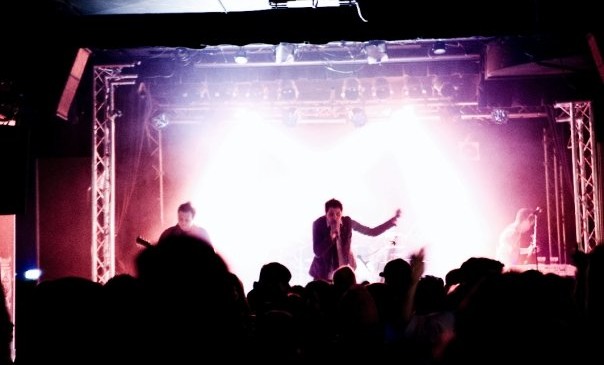County says state law trumps late-night concerts
Thursday, July 23, 2015 by
Caleb Pritchard Travis County Judge Sarah Eckhardt is brushing off concerns that a plan to reform outdoor concert regulations in the county could potentially violate state law.
The Travis County Commissioners Court is currently weighing a decision that would streamline the permitting process for mass gatherings in a way that would include a tougher stance against loud music after certain hours of the night on unincorporated lands.
Critics of the plan – including promoters of some of the festivals that would be affected – argue that Texas counties have no authority to regulate sound levels beyond what state law allows. The Texas Penal Code defines “unreasonable noise” as anything over 85 decibels, or somewhere between a blender and a garbage disposal.
“I think what’s going on here is, as Shakespeare said in Hamlet, “Methinks the lady doth protest too much,” Eckhardt told the Austin Monitor on Tuesday.
She explained that the plan before the court simply sets a baseline expectation of when events must pull the plug on amplified music. The proposed change would set that baseline at 10 p.m. Sundays through Thursdays and at midnight on Fridays and Saturdays. However, Eckhardt stressed that permit applicants who plan to rock out later than that won’t necessarily be denied.
“If they feel that it’s important for them to be able to go beyond that, they can discuss it with their neighbors. They don’t have to get unanimous consent from their neighbors, but if it is reasonable, then we would go beyond those time parameters,” Eckhardt said.
Eckhardt struck out on the quest to reform the permitting process back in the spring following complaints from neighbors living in the Carson Creek Ranch area near the airport. The outdoor venue has hosted several big events this year, including the Austin Psych Fest, Euphoria Music and Camping Festival and the Life in Color paint party.
The founder of Euphoria, Mitch Morales, told the Monitor that forcing promoters to negotiate with neighboring property owners in order to extend the hours for amplified music would create financial uncertainty.
“It’s difficult to be making plans for the future, to be operating a camping festival, if the county arbitrarily or based on feedback from a limited amount of people tries to impose restrictions,” Morales said. “It takes it away from a black-and-white to a gray area where the law is open to interpretation. I think that’s a dangerous, slippery slope.”
The Texas Mass Gatherings Act of 1989 gives county judges authority over the permitting process, but Morales argues that it does not grant the power to reduce hours of amplified sound. Indeed, the law spells out nine conditions by which a judge can refuse a permit and none mention amplified sound.
However, Assistant County Attorney Tom Nuckols told the Monitor that the judge is also looking at the Texas Administrative Code, which mandates as a matter of public health that mass gatherings must limit sound at the site’s perimeter to 70 decibels, or about as loud as a vacuum cleaner.
Since the Mass Gatherings Act allows a county judge to deny permits if she believes preparations for an event won’t ensure that “health will be maintained,” Nuckols said the current proposal is fully legal.
“At some point you have to cut it off because people can’t sleep,” Nuckols said.
At a meeting earlier this month, the Commissioners Court delayed a final decision on the proposed changes in order to allow more time for discussions with stakeholders. The vote is now tentatively scheduled for its Aug. 11 meeting.
Morales says he will stay at the table until then, but he added that, in light of recent headlines roiling Austin’s music culture, he won’t be doing it simply to protect his own festival.
He told the Monitor, “We’re taking time out of our schedule when we’re trying to grow this event, but we’re doing it because we think it’s a bad deal for Austin and the live music scene overall.”
Photo by Lifeisyours (Own work) [Public domain], via Wikimedia Commons.
You're a community leader
And we’re honored you look to us for serious, in-depth news. You know a strong community needs local and dedicated watchdog reporting. We’re here for you and that won’t change. Now will you take the powerful next step and support our nonprofit news organization?



